Can I Have Juice And Smoothies After Bariatric Surgery?
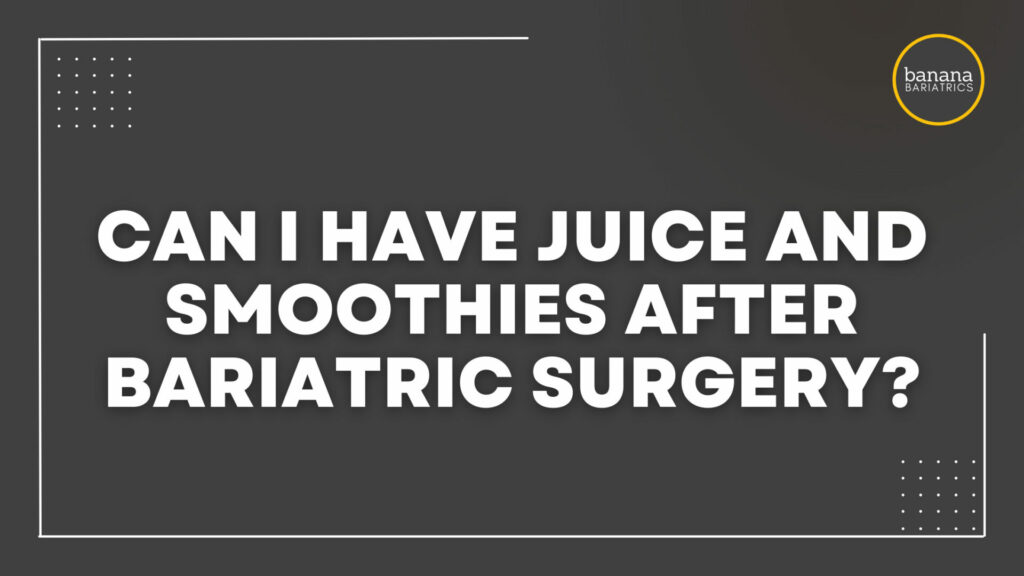
Have you wondered if it’s okay to have smoothies after bariatric surgery- even if you go to Smoothie King and order their smallest size and add extra protein into it? What about a glass of orange juice to pair with your morning breakfast? At first glance, these may seem like healthy options and good ideas to keep in your diet. Unfortunately, drinking smoothies and/or juice after surgery can be a big set back for continued weight loss long-term after bariatric surgery. In this blog post, we are going to discuss how juice and smoothies can have an impact on weight loss, explore some healthier alternatives, learn more about the artificial sweetener Aspartame, and glean some helpful strategies on how to still enjoy smoothies and juice without all of the sugar.
Juice And Smoothie Effects On Weight Loss
The one thing that commercially available juices and smoothies share in common is sugar. Juice and smoothies are very high in sugar and can not only raise your blood insulin levels (which encourages weight GAIN and not weight LOSS) but also increase your risk for experiencing dumping syndrome.
Dumping syndrome is an unpleasant experience where you can feel nauseous, dizzy, lightheaded, have immediate loose stools, and overall feel miserable from having high sugar substances. Since juice and smoothies are mostly fruit based – without the fiber – you are drinking straight sugar and carbohydrates which can be a heavy hit for your bariatric stomach.
Sugar-Free Juice And Smoothie Alternatives
Now, some of you may be about to ask me… “But what if it’s sugar free?“
Ideally, I would try to avoid sugar-free versions of juice as well. Typically, sugar-free juices are full of artificial sweeteners and ingredients. However, if the alternative is an inability to reach your 64+ oz of water goal per day, then it is okay to continue to have sugar free options on hand. Perhaps consider working on slowly transitioning over to a whole food nutrient dense version of this.
For example, if you love sugar free lemonade minute maid, can you re-invent the wheel by squeezing fresh lemon into water to see if it tastes equally satisfying? Maybe try warming up your lemon water to make it hot and see if it helps it taste better?
Or, you can go on Google and Pinterest and look up “fruit infused water recipes” to explore some healthier options to enjoy an ice cold refreshing beverage without the sugar load.
The goal is to ultimately consume a diet (both in food and drink) that is full of nutrient dense whole foods whenever possible. The sooner you can wean yourself off artificial ingredients- especially Aspartame- the better, as artificial ingredients have been shown to cause inflammation in the body.
Aspartame- A Popular Artificial Sugar Sweetener
Aspartame is an artificial sweetener found in > 6,000 products including soda, frozen desserts, yogurts, dessert mixes, chewable vitamins, and breakfast cereals. Current research studies on aspartame are mostly based on animal studies. The findings from these studies suggest that aspartame – even at safe dosages – may not be safe. When metabolized, the broken down components of aspartame (phenylalanine, methanol, and aspartic acid) cause stress, inflammation, and damage to most cells, tissues, and organs in the body. There are even animal studies that suggest that aspartame can have an affect on glucose and insulin levels. Data suggests that aspartame could not only worsen existing full-body inflammation, but also cause inflammation in healthy individuals who consume it regularly.
Can Smoothies And Juice Be Healthy?
Despite juices being labeled as a “healthy green juice” or being made in front of you as a “fresh smoothie,” they can still have a serious impact on your weight loss impact. The next time you’re at the grocery store, I encourage you to turn over the smoothie bottle and read how many grams of carbohydrates and sugar are in one serving size (let alone the whole bottle)!
Now, do you have to shun smoothies and juice forever? No, not at all.
Some patients who occasionally crave juice will pour 1-2 ounces into a cup and dilute the rest with water. They won’t have this every day, but here and there when the craving gets strong or they’re on vacation.
Other patients who love smoothies will consume a small amount of the smoothie with a piece of mozzarella cheese stick or other source of protein (ie: protein powder mixed in), and save the rest for later.
Healthy Juice And Smoothie Alternatives
Here are some healthy tips and tricks that can help you through your juice cravings:
- If you’re craving grape juice, have ½ cup of grapes. You can even put them in the freezer for a cold treat!
- If you’re craving orange juice, have a small clementine.
- If you’re craving apple juice, have 1 small apple (or ½ of a medium sized apple).
- Rather than use apple juice to move your bowels, use Benefiber or Smooth Move Tea instead
The main benefit of the alternatives listed above include the natural fiber that comes with the full version of enjoying the fruit itself. Fiber will help you feel fuller longer- and when paired with protein- will help you LOSE weight in the long-term.
When it comes to smoothies, if you love the consistency of a smoothie, my recommendation is to make it at home and to include a protein powder as well. Try diluting your milk with half water to cut down on your sugar content – or better yet- use an unsweetened nut milk (like an unsweetened almond or coconut milk) as an alternative.
Bariatric Protein Smoothie Recipe
Chocolate Peanut Butter Shake Recipe:
Blend with a high-speed blender like a Vitamix to enjoy a high protein, low sugar shake!
- ½ frozen banana
- 5-6 ice cubes
- 8-12 oz unsweetened almond milk
- Water
- Unjury unflavored whey protein powder (or 2 scoops collagen peptides)
- 2T PBfit (unsweetened)
- 2T unsweetened cocoa powder
- [optional] 1T 100% cacao nibs (for a little bit of a crunch)
Important Bariatric Reminders Around Sugar
- Consume < 2 servings of fruit per day. 1 serving of fruit = ½ cup of cut up fruit, or ½ medium banana
- Avoid empty calories like juices and smoothies that are full of sugar
- Have < 20g of added sugar total for the day
- If you’re craving fruit, stick to berries (ie: blackberries, strawberries, raspberries, blueberries)- as these will have the least effect on your blood glucose compared to other fruits.

In Summary
Juice and smoothies can have a significant impact on slow weight loss (and even potentially weight GAIN) due to the significant amount of sugar and carbohydrates contained within the beverages. Healthier alternatives to sugar-free options can instead include fruit infused waters, diluting an ounce or two of fresh juice with water, and/or making your smoothies from home using unsweetened milk or non-dairy alternatives. Whenever possible, add protein powder or eat the fruit itself with a little protein on the side to include natural fiber that will help keep you fuller for longer.
Struggling With Weight Loss After Surgery?
You’re not alone! Not only is losing weight challenging after bariatric surgery, but so is maintaining it. Therefore, we’ve put together a helpful (FREE) downloadable resource on weight regain that you may find helpful.

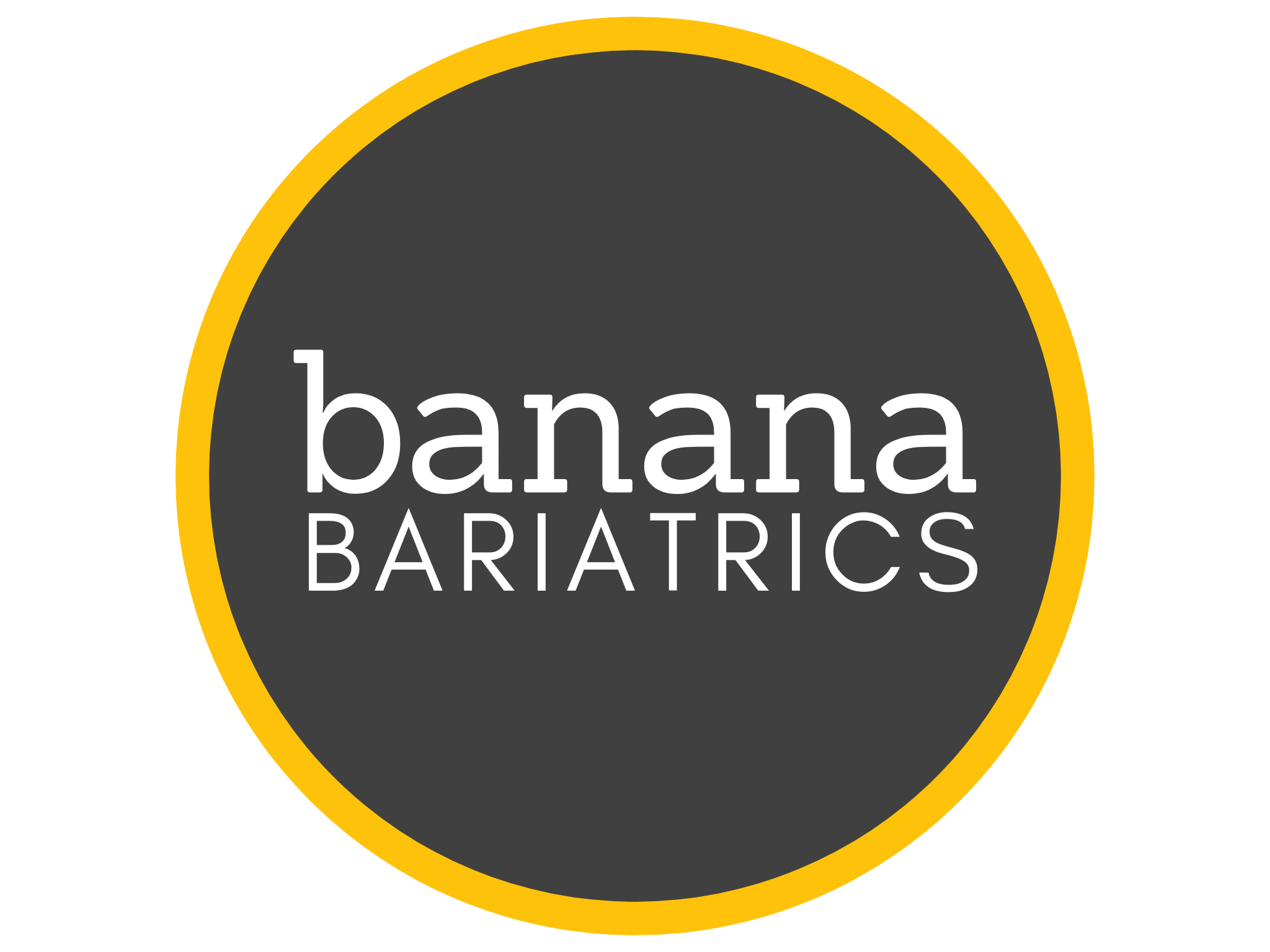
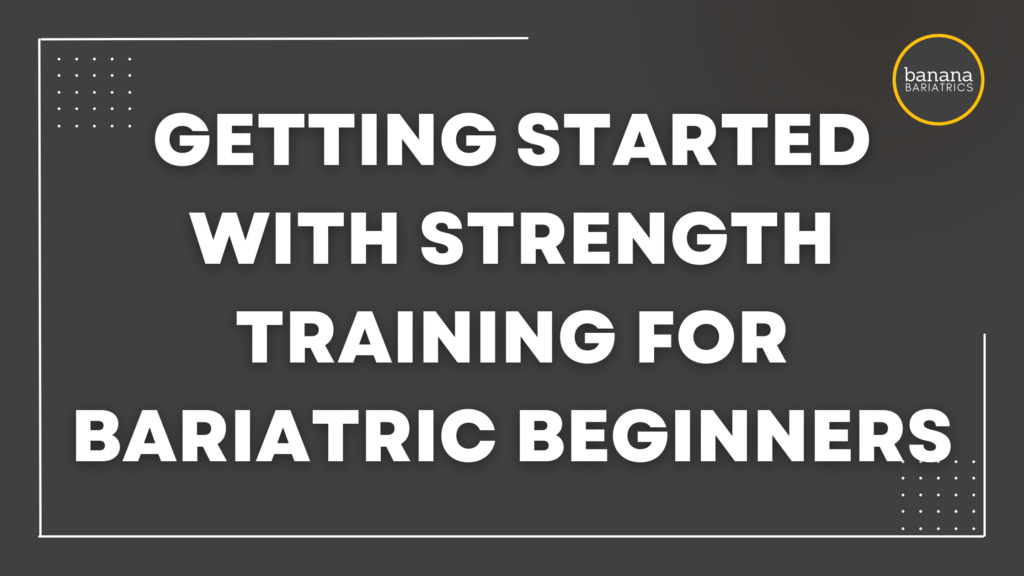
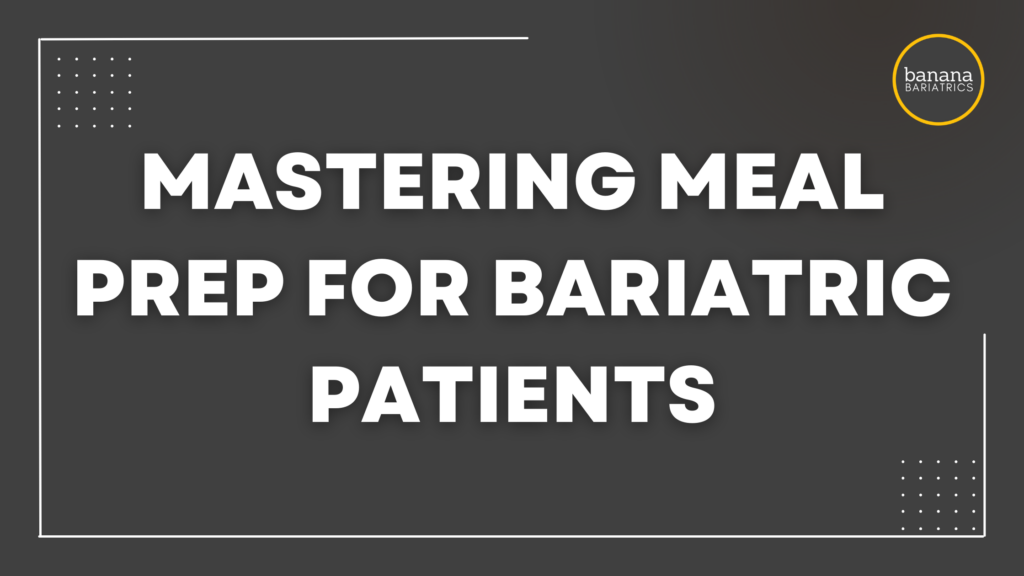
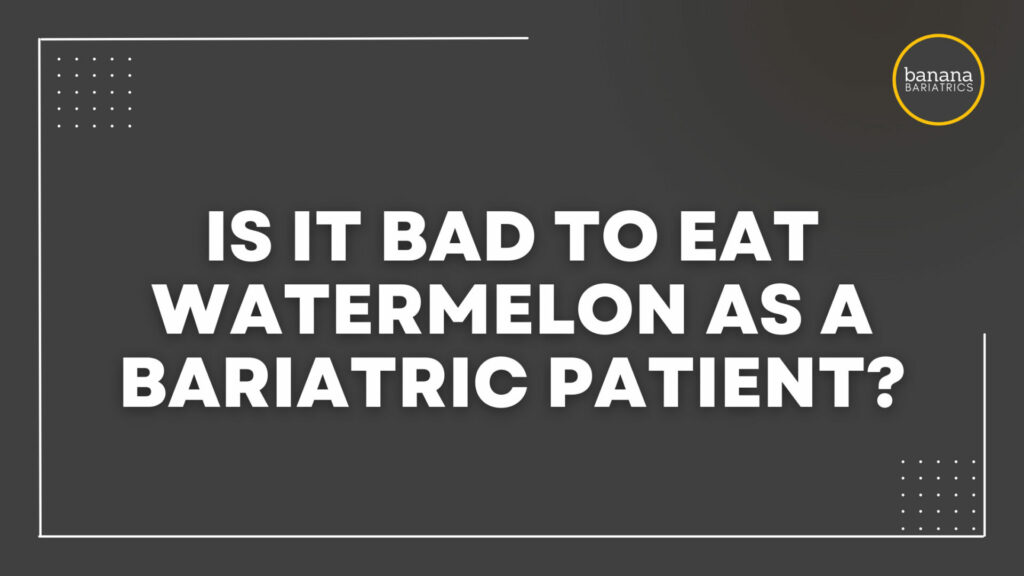
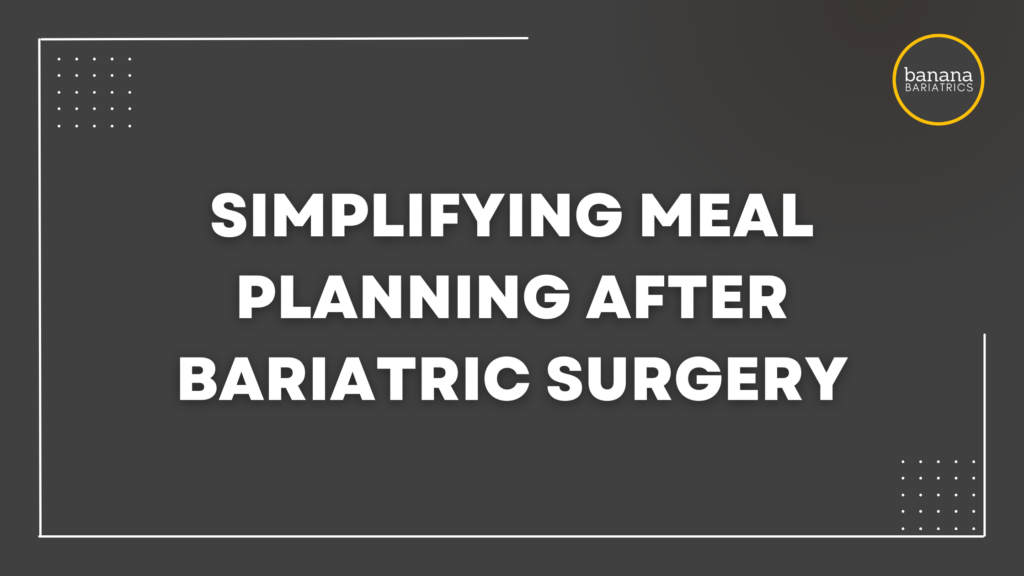
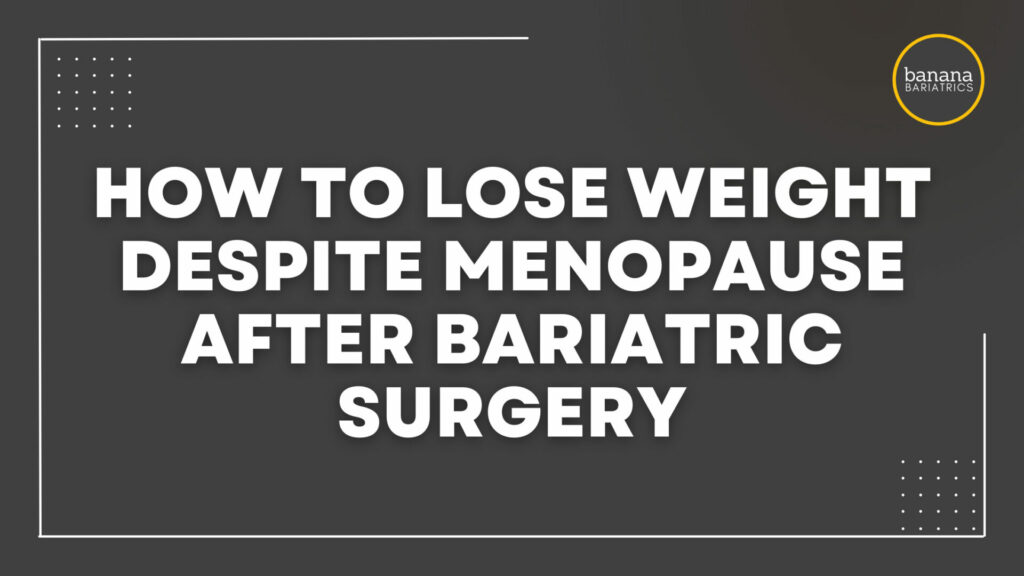
Responses